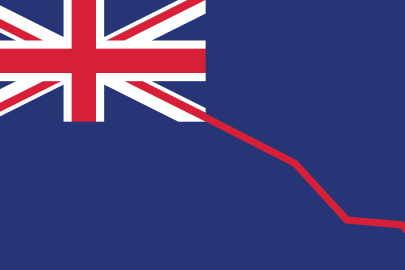May 25, 2015 Politics
This column was first published in the May 2015 issue of Metro.
Look out! The Maoris are coming through the window to grab your water! What’ll they want next? The air we breathe?
For the first time since the Supreme Court denied the New Zealand Maori Council an injunction against the sale of shares in hydroelectricity generators, water rights are back on the media agenda, with all the usual sophistication. As part of her destabilisation campaign against John Key, Judith Collins revealed the powerful Iwi Leaders Group is in talks with the government about what residual rights Maori may have to freshwater. Don Brash weighed in, warning it was an issue ready-made for Winston Peters.
Key called plaintively for “a sane debate” over how water is to be allocated in the future. That’s ironic given he entrusted the issue to Amy Adams for two and a half years and has repeatedly denied the potential for any kind of property rights to water. Tell that to not just, say, Antipodes, but to anyone who benefits from an easement to access a stream. The good news since the election — and how often can you say this? — is that Nick Smith is back in charge. His first big move is giving the independent Land and Water Forum a new mandate to reach consensus.
The forum’s origins lie in a 2008 Environmental Defence Society conference when it was clear freshwater was nearing full allocation through most of New Zealand. Delegates didn’t agree on much except that they were all exhausted fighting one another under Resource Management Act procedures — but that was something. It so happened environmentalist Guy Salmon was studying Scandinavian-style collaborative decision-making processes and informed all the various sector groups they were now part of one. Smith, the Environment Minister, agreed to fund it and it soon included pretty much everyone with an interest in who gets freshwater and how to keep it clean.
Make no mistake: the forum consists of usually warring factions. Federated Farmers and Fonterra sit alongside Forest & Bird, iwi, tourism operators, hydroelectricity generators, local government and the forestry and horticulture industries. The key to progress was the appointment as chairman of one of New Zealand’s most experienced diplomats and trade negotiators, Alastair Bisley. He managed to forge a remarkable consensus, first at a high level and then on the finer detail. Tragically, though, by the time the forum’s third report was issued at the end of 2012, Smith had been sacked following the Bronwyn Pullar affair.
Adams, his replacement, implemented nearly half the forum’s recommendations but decided her bureaucrats should take over the lead from business and NGOs. The forum ticked over in a much less prominent role.
At one level the issue is simple. Not too long ago, New Zealand’s economy and human and bovine populations were so small, a queue-based, first-in-first-served rationing system was adequate. The farmer up the river taking water didn’t affect the tourism operator further down and most pollution would be so diluted as to be irrelevant.
Where water is fully allocated, most infamously in Canterbury, how does a more efficient new farm get access to water controlled historically by the old, inefficient farmer further along the plain? And how do freshwater resources shift among industries — say, from farming to tourism enterprises that deliver a higher return? And how can there be sufficient certainty for new investors to be confident of continuing access?
I say some type of pricing mechanism will inevitably be needed to manage allocation, with a rules-based system in which local communities can trump overly politically correct Wellington bureaucrats to manage quality. But who cares what any individual thinks? The important thing is to develop a system that is simple, transparent and sufficiently permanent to achieve investor confidence — and that demands political consensus. Unlike the magisterial newbie Adams, Smith has sufficient humility and political experience to know that’s only possible if the solution is designed and owned by all the competing interests. Thus the renewed mandate he has given to Bisley’s forum.
If a consensus is built around water allocation and quality, involving something even remotely analogous to a property right, then everyone who uses water will have an interest in the transition to the new regime. That includes the historic farming family, the long-term tourism operator, the new immigrants with a swimming pool, the government as owner of the conservation estate and the iwi on whose mountains water falls and through whose rivers it flows. In 2015, recognising Maori as one of those groups who may have some form of existing property right is surely not that much of a big deal.





